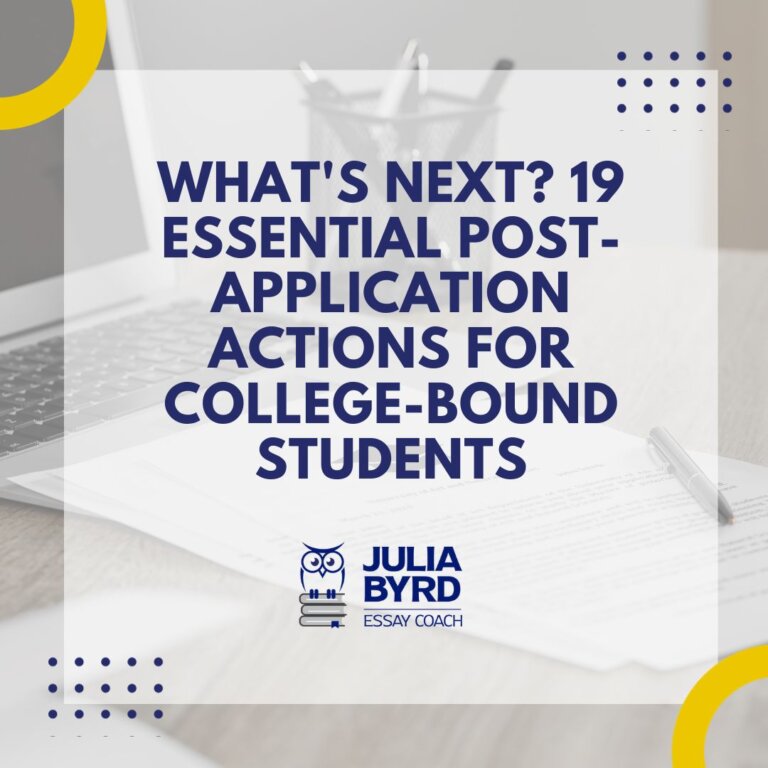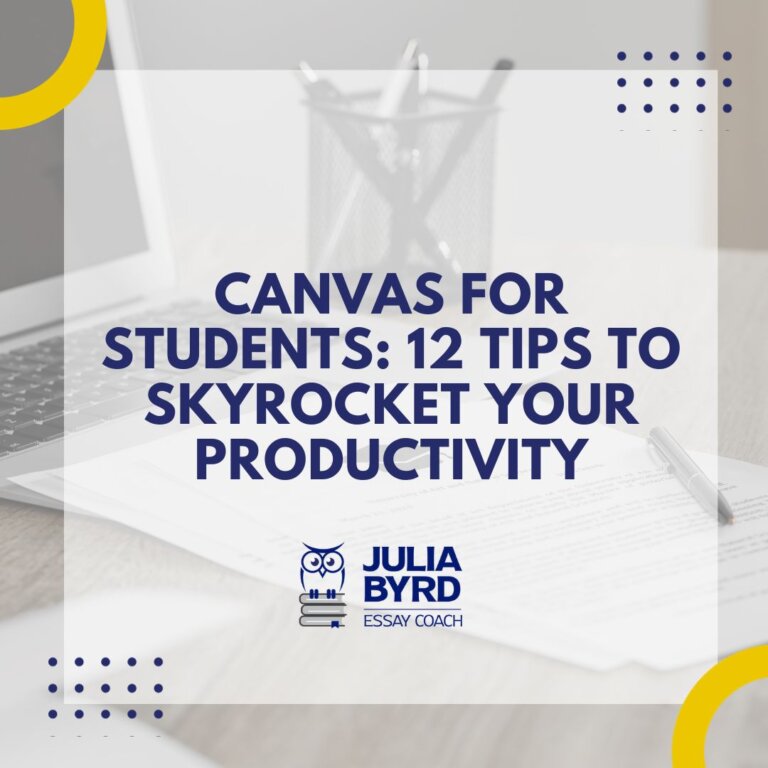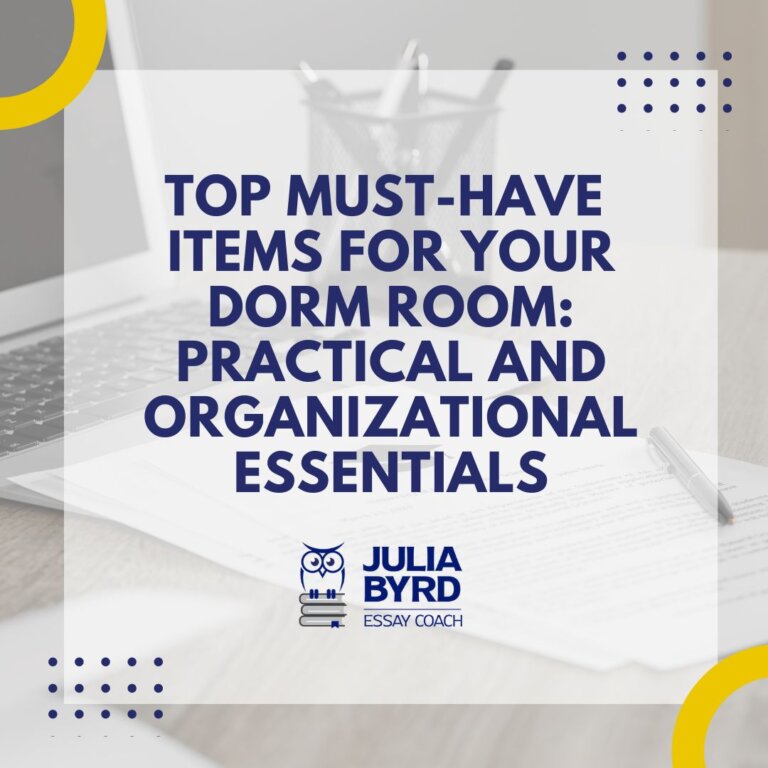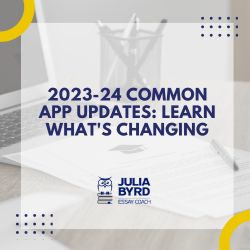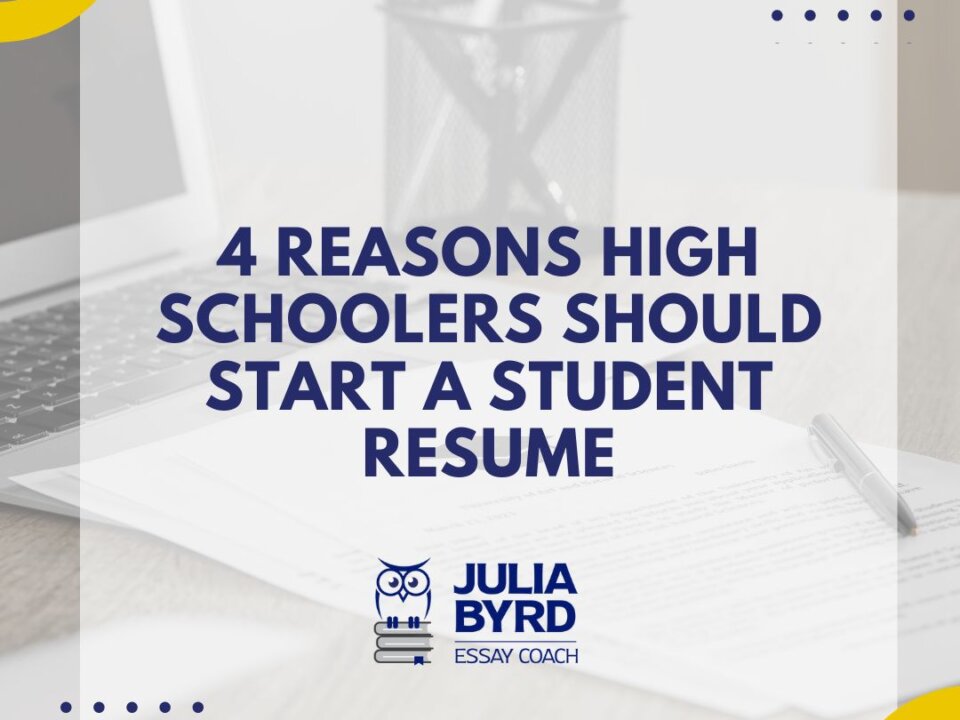A Student’s Guide to Gaining Professional Development and on-the-Job Experience

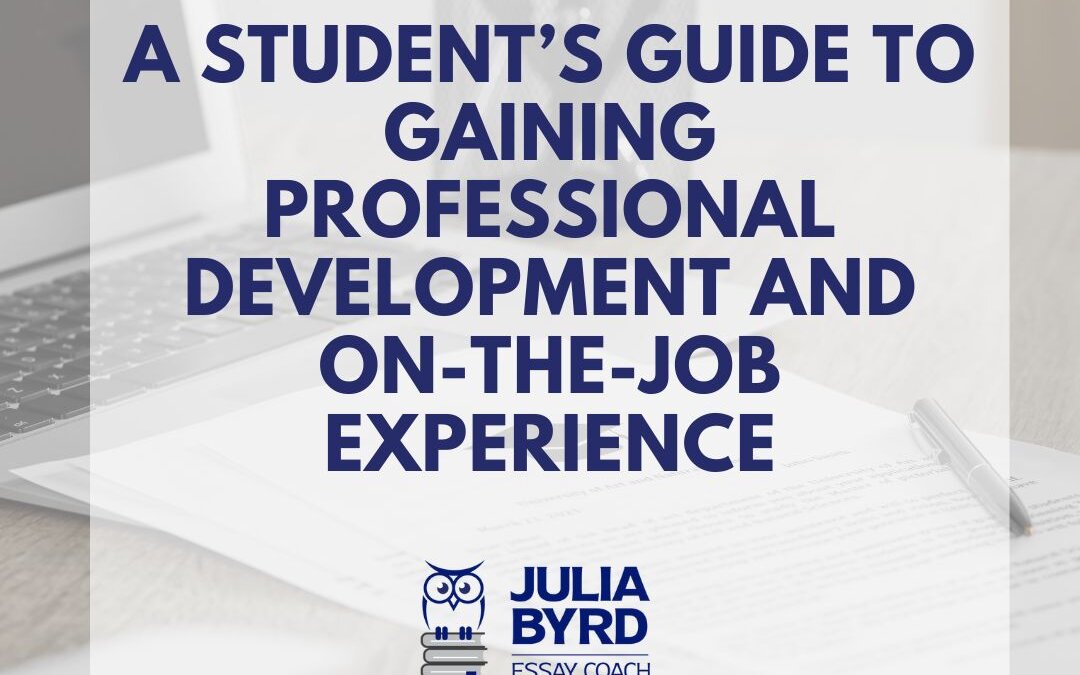
While taking on a full-time “real” job while still in school may seem overwhelming (and early) for many students, embarking on a professional development journey during high school and college is a genius move that can pay off several times over. Whether you’re eyeing internships, volunteer service, or job shadowing, there are countless ways for you to gain practical, job-related experience. In this blog post, we’ll delve into practical tips to help you find, maximize, and capitalize on these opportunities.
Why You Should Consider Starting Your Professional Development Early
Work experience teaches you more about the field you’re interested in, and it can also contribute to your professional development and help you develop a wide range of transferable skills that will serve you well in the workplace and the classroom. Plus, it’s sure to give you a confidence boost you can leverage in the future.
Here are six ways you can start your professional development and gain professional experience.
1. Internships
You may sometimes wonder if what you’re learning in class will ever be used in your career. Luckily, internships are where textbook theories transform into the real deal. In these hands-on gigs, you’ll get to actually do the stuff you’ve been learning about. Internships aren’t just about sharpening skills; rather, they’re like getting a sneak peek into how things really work in the professional arena. Working side by side with the pros, facing actual challenges, and figuring out the office vibe — it’s the crash course in all things job-related. You’ll also make meaningful connections that may help you score future job opportunities, making internships the perfect way to get your foot in the career door.
Having an internship on your resume isn’t just a great way to show you’re legitimately interested in a field — it also shows that you’ve got the chops to make it there. And here are some added perks: They usually last for just one to two months, and they’re often paid. So, if you’re up for the challenge, these breaks could be your ticket to proving you’re a pro in the making!
2. Volunteer Opportunities
Volunteer work isn’t just about giving back to the community; instead, it can also be a fantastic way to build practical skills. Look for volunteer opportunities that correspond with your career goals. You’ll find chances for organizing events, managing social media accounts, supervising teams, and even assisting in community projects. And wouldn’t it feel good to get hands-on experience while positively impacting the world around you?
Here’s another suggestion: Don’t limit yourself to a single community service project. Consider volunteering at several organizations to test out new skill sets and discover the work that resonates with you. You might be surprised to learn where your interests truly lie.
3. Job Shadowing
Job shadowing allows you to step into the shoes of professionals in your field of interest, from medicine to marketing to law. Reach out to professionals and express your interest in spending a day (or a week or a month) observing their work. This firsthand experience can provide invaluable insights into what a doctor or social media marketer actually does — and that will help you make more informed decisions about your future educational and career path.
4. Virtual Internships and Remote Opportunities
Thanks to the COVID-19 pandemic, the professional development landscape has evolved — and so have the opportunities. Virtual internships and remote work experiences have become increasingly popular (and common). Take advantage of that! Explore platforms that connect students with remote internships, allowing you to gain practical experience from the comfort of your home. This flexibility can be a game-changer, especially for those juggling academic, family, or extracurricular commitments.
5. Part-Time Jobs
Scoring a part-time gig at Target or your local Italian restaurant can give you more experience than you think. In fact, part-time jobs can be like a secret weapon for beefing up your commercial smarts and nailing customer service and problem-solving skills. Whether you’re hustling by mowing lawns or mastering the art of babysitting, showing this kind of initiative gives you a crash course in responsibility and pro-level resilience. And here’s the bonus: bosses love it. They see your part-time hustle as proof that you’re the punctual, task-master they’ve been looking for. So, next time you’re on the job hunt, remember: A seemingly ho-hum part-time position could be your ticket to showing off some serious workplace chops! Look for something that will let you develop skills that you can add to your resume and that you’ll enjoy.
6. Entrepreneurship
If you can’t find an opportunity that fills your needs … why not create your own? Starting your own business isn’t just about being the boss; instead, it’s a crash course in Job Experience 101. You become the CEO, the intern, the chief marketer, the sales team, and the problem solver all rolled into one.
Handling the day-to-day challenges of running a business puts you on the fast track to gaining hands-on experience. From managing budgets to dealing with customers, you’re in the driver’s seat, learning the ropes in a real-world setting. The entrepreneurial journey isn’t always smooth sailing, but the lessons you pick up along the way? Priceless. So, if you’re up for a wild ride that’s a masterclass in job experience, maybe it’s time to consider starting your own hustle. Who knows, you might just discover the entrepreneur in you!
How to Get These Amazing Experiences
Now that you’re pumped to get started with your professional development, let’s talk about how to get started. It might be easier than you think if you take advantage of one or more of these strategies.
Tap Into Online Platforms
There are countless online platforms that can connect students with job-related experiences. Platforms like LinkedIn, Handshake, and Indeed can be invaluable tools. Create a solid online presence, connect with professionals, join relevant groups, and keep an eye on job postings. These platforms often serve as a bridge between eager students and organizations seeking fresh talent.
Attend Career Fairs
Attending career fairs and industry conferences goes beyond information gathering; it also serves as a great opportunity to capture the interest of potential employers. When you’re networking with professionals at job fairs, you’ll get the chance to engage with a diverse range of employers. Even virtual events allow you to explore workplaces and learn more about job specifics and work environments.
Network
Networking with other professionals — even if they’re not in your target industry — is a powerful tool that can open doors to unexpected opportunities. (After all, you’ll often hear people say that getting a job offer isn’t dependent on just what you know … it’s also who you know.)
So expand the circle of who you know. Attend industry conferences, seminars, and workshops. Connect with professionals in person and online, and don’t hesitate to reach out for informational interviews. Building a strong professional network can offer insights and mentorship and even lead to job offers.
Use Campus Resources
Your campus is a treasure trove of professional development resources waiting to be explored. Ask about career counseling sessions to gain insights into potential opportunities aligned with your field of study. Have the career center team review your resume and implement their suggestions for improving it. Leverage networking events organized by your college or high school to connect with professionals and alums who can offer guidance and open doors to opportunities.
Teachers, professors, and alums can also be important resources. Thanks to their extensive experience and connections with the community, many of them may have the keys to unlock doors of opportunities you didn’t even know existed.
Conduct Informational Interviews
If you’ve got an hour and a burning desire to better understand what your dream job is really like, then it’s time to schedule a few informational interviews. Reach out to professionals, ask for a Zoom (or in-person) meeting, and take advantage of your time together to learn more about their career journey and get advice for embarking on yours.
Start Early, Stay Persistent
The early bird catches the worm, and the early career seeker catches the opportunity. Begin your quest for practical experience early in your academic journey (even if it feels too early). Don’t be disheartened if you face initial rejections; persistence often pays off. Remember, every “no” brings you one step closer to that “yes.” (And even seasoned veterans sometimes hear “no.”)
Craft a Standout Resume and Cover Letter
Your resume and cover letter are your first impression on potential employers. Make them stand out! Tailor your resume to highlight relevant coursework, skills, and extracurricular activities showcasing your commitment and passion. Craft a compelling cover letter that expresses your interest and aligns your skills with the prospective employer’s needs.
Then don’t forget: As you gain all these amazing professional development experiences, document them. That means keeping your resume updated and even developing a portfolio that showcases the projects, achievements, and skills you’ve acquired along the way. Both will become powerful tools during job interviews, demonstrating your practical knowledge and commitment to professional development.
Ready to Get Started?
Gaining practical, job-related experience while still in school or over summer vacation isn’t about just ticking a box; it’s about investing in your future. By starting early, leveraging resources, and embracing a proactive approach, you can pave the way for a successful and fulfilling career through professional development. So, gear up, embrace the opportunities, and let your journey toward practical experience begin!
And if you need some help with your resume, just contact me today. I’d love to share how I can support you!

